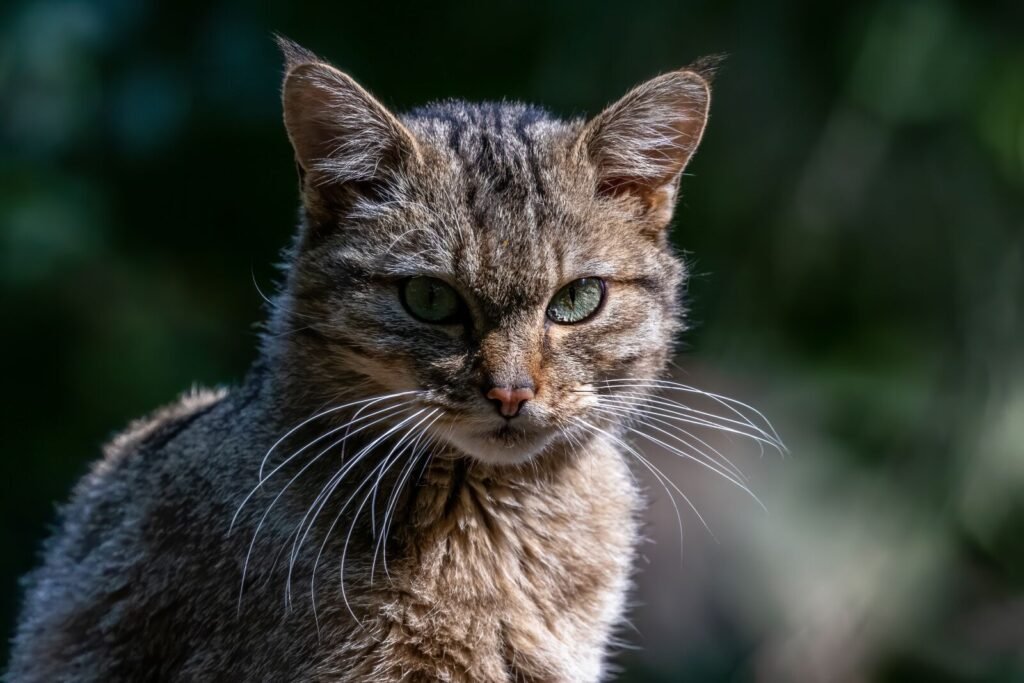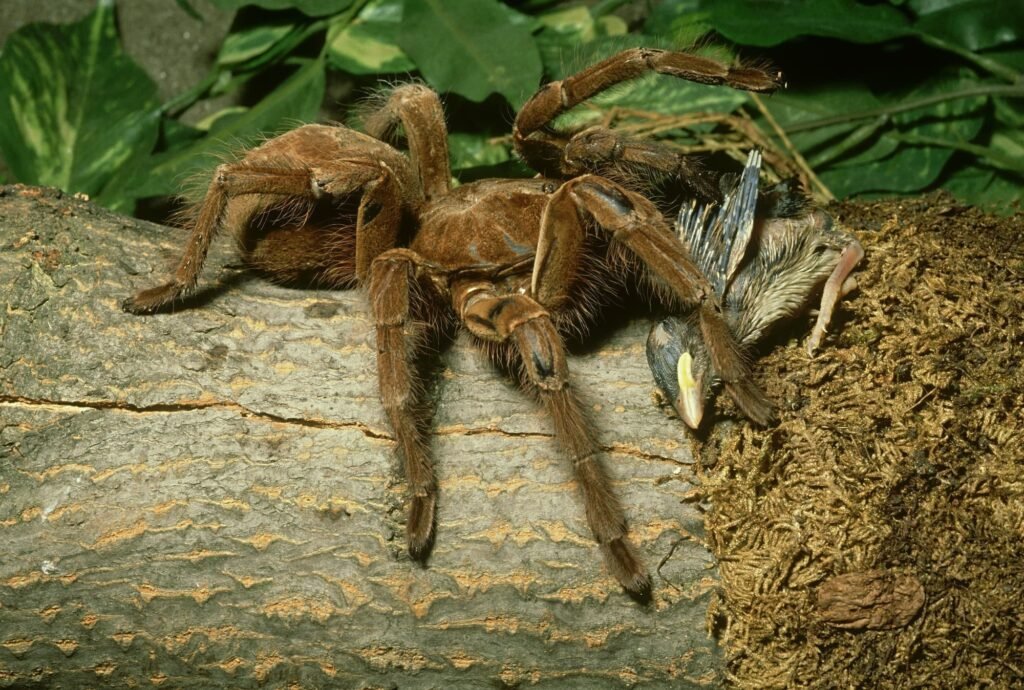Cats are known for their curious and playful nature, often chasing anything that moves. Among the creatures that might catch their eye are spiders. But what happens when your cat catches and eats one? Is it safe? Should you be worried? In this article, we’ll delve into why cats eat spiders, the potential risks involved, and what actions you should take if your furry friend decides to snack on an eight-legged intruder.
Table of Contents
- Do Cats Eat Spiders?
- Why Do Cats Hunt and Eat Spiders?
- Is Eating Spiders Safe for Cats?
- Can Eating Spiders Make Cats Sick?
- Are Indoor Cats Likely to Eat Spiders?
- How Should I Respond If My Cat Eats a Spider?
- Can Spiders Harm Cats If Eaten?
- Which Spiders Are Dangerous to Cats?
- Why Are Cats Attracted to Spiders?
- Is It Possible for a Cat to Die from Eating a Spider?
- Preventing Your Cat from Eating Spiders
- Steps to Take If Your Cat Consumes a Spider
- Recognizing the Signs of a Dangerous Spider Bite in Cats
- Safe Alternatives to Spider Hunting for Cats
- Conclusion
Do Cats Eat Spiders?
Yes, cats do eat spiders. Cats are natural hunters, and their predatory instincts can drive them to chase and consume small creatures like spiders. Although not every cat will choose to eat a spider, many will, driven by their innate desire to hunt.
Why Do Cats Hunt and Eat Spiders?
Cats hunt and eat spiders primarily because of their instinctual behaviour. Even domesticated cats with plenty of food available often engage in hunting activities for stimulation and play. With their quick, jerky movements, spiders are particularly enticing targets for cats, triggering their chase response.
Is Eating Spiders Safe for Cats?
It is safe for cats to eat spiders for the most part. The vast majority of spiders found in homes are harmless to cats and do not pose any significant risk. However, there are some exceptions, particularly when it comes to venomous spiders, which could potentially cause harm if ingested.

Can Eating Spiders Make Cats Sick?
While it’s generally uncommon, there is a possibility that eating spiders could make a cat sick, especially if the spider is venomous. However, in many cases, the spider’s venom is neutralized by the cat’s digestive system, leading to no harmful effects. If a cat does show signs of illness after eating a spider—such as vomiting, lethargy, or drooling—it’s advisable to consult a veterinarian.
Are Indoor Cats Likely to Eat Spiders?
Yes, indoor cats are just as likely to eat spiders as outdoor cats. Despite being in a controlled environment, indoor cats retain their hunting instincts. They may encounter spiders in the home and, driven by curiosity or instinct, decide to chase and eat them.
What Should I Do If My Cat Eats a Spider?
If your cat eats a spider, remain calm and observe your cat for any unusual behaviour or symptoms. In most cases, the spider will be digested without issue. However, if your cat starts showing signs of discomfort or illness—such as vomiting, excessive drooling, or unusual lethargy—it’s essential to seek veterinary advice immediately.
Can Spiders Harm Cats If Eaten?
While most spiders will not harm cats if eaten, certain species can be dangerous. Some spiders may bite as a last defence when attacked, and if the spider is venomous, this could potentially cause harm to the cat. Nevertheless, such cases are rare, and most cats will suffer no ill effects from eating a spider.
Which Spiders Are Dangerous to Cats?
Most spiders are harmless to cats, but some species, like the black widow or brown recluse, are venomous and can pose a significant risk. If a cat eats one of these spiders, the venom could cause symptoms such as muscle tremors, respiratory issues, or severe pain. In these instances, prompt veterinary care is critical.
Why Are Cats Attracted to Spiders?
Cats are attracted to spiders because their erratic movements and small size mimic the type of prey cats are naturally inclined to hunt. Spiders’ sudden, unpredictable movements make them irresistible to cats, who see them as the perfect target for a chase.
Is It Possible for a Cat to Die from Eating a Spider?
Although it’s scarce, a cat can die from eating a venomous spider. The severity of the situation depends on the type of spider, the amount of venom ingested, and the cat’s reaction to the venom. Immediate medical attention is crucial if a cat shows any signs of distress after eating a spider.

Preventing Your Cat from Eating Spiders
To reduce the chances of your cat eating spiders, consider the following tips:
- Maintain a clean home: Regular cleaning can help reduce the presence of spiders.
- Seal entry points: Prevent spiders from entering your home by sealing gaps in windows, doors, and walls.
- Use cat-safe spider repellents: Natural deterrents like peppermint or citrus oils can keep spiders at bay without harming your cat.
- Provide plenty of toys and enrichment: Keeping your cat entertained with toys and interactive play can decrease their interest in hunting spiders.
Steps to Take If Your Cat Consumes a Spider
If your cat consumes a spider, monitor them closely for any signs of illness. Symptoms like vomiting, drooling, or lethargy could indicate a problem. In such cases, contacting a veterinarian is recommended. If you know the spider is venomous, seeking immediate veterinary attention is crucial.
Recognizing the Signs of a Dangerous Spider Bite in Cats
If you suspect a dangerous spider has bitten your cat, watch for the following symptoms:
-
Uncontrolled drooling or foaming at the mouth
-
Tremors or muscle twitching
-
Difficulty breathing
-
Extreme lethargy or collapse
These symptoms require urgent veterinary care, which could indicate a severe reaction to a nasty spider bite.
Safe Alternatives to Spider Hunting for Cats
Rather than allowing your cat to hunt spiders, you can provide safer alternatives that satisfy their hunting instincts:
- Interactive toys: Use toys like laser pointers or feather wands to mimic the hunting experience.
- Puzzle feeders engage your cat’s mind and replicate the challenge of hunting for food.
- Climbing structures: Cat trees and shelves allow your cat to explore and exercise in a safe environment.
Conclusion
Cats eating spiders is expected, driven by their natural hunting instincts. While most spiders won’t harm your cat, there are exceptions, particularly with venomous species. As a pet owner, it’s essential to be aware of the potential risks and take steps to minimize them. Regularly monitor your cat’s behaviour, keep your home spider-free, and provide plenty of alternative stimulation to keep your feline friend safe and happy. And also find more information about pet care on Cooper Pet Cares
FAQs
Is it normal for cats to eat spiders?
Yes, it’s a common behaviour driven by their natural hunting instincts.
What should I do if my cat shows illness after eating a spider?
Contact your veterinarian immediately if your cat exhibits symptoms like vomiting, lethargy, or difficulty breathing.
Can all types of spiders harm cats?
Most spiders are harmless, but venomous species like black widows can pose a significant risk.
Why does my cat seem obsessed with chasing spiders?
Cats are naturally attracted to the erratic movements of spiders, which trigger their hunting instincts.
How can I prevent my cat from eating spiders?
Keeping your home clean, using natural repellents, and providing alternative toys can help reduce this behaviour.